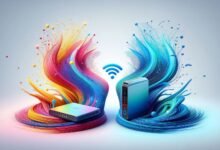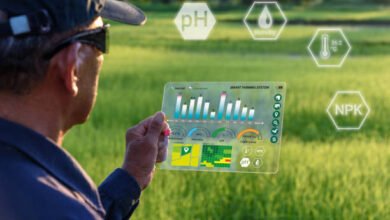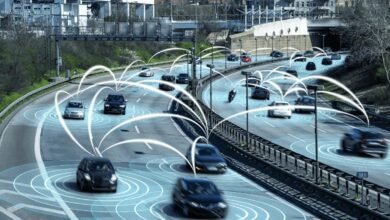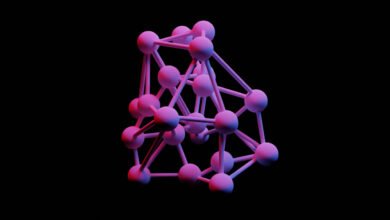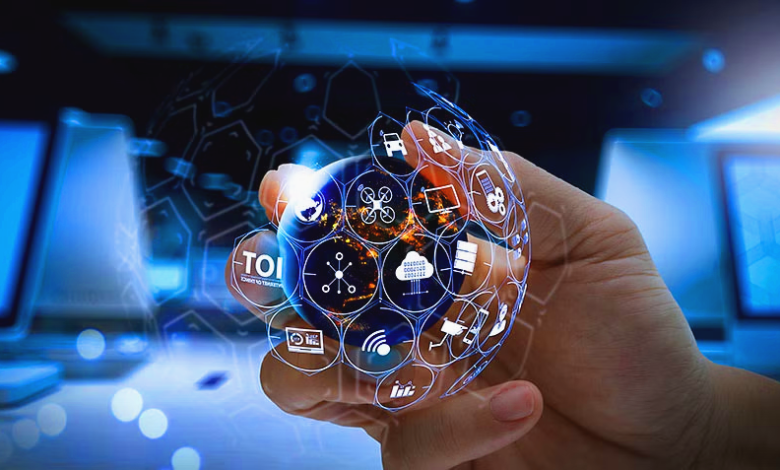
In a world increasingly driven by technological advancements, the Internet of Things (IoT) emerges as a transformative force, reshaping the way we live and do business. From smart homes to industrial applications, IoT has become an integral part of our daily lives. In this comprehensive guide, we will delve into the intricacies of IoT, exploring its components, applications, benefits, challenges, and future trends.
Unleashing the Power of IoT
Definition of IoT
The Internet of Things refers to the network of interconnected devices and sensors that communicate and share data over the internet. These devices, equipped with unique identifiers, can range from household items to industrial machinery.
Significance of IoT in today’s world
In an era where connectivity is king, IoT plays a pivotal role in fostering a more connected and efficient world. It enables seamless communication between devices, paving the way for smart solutions that enhance our daily lives.
Read More : Essential Tips for Your IoT Device Protection: A Comprehensive Guide
Understanding the Components of IoT
Sensors and devices
At the core of IoT are sensors and devices that collect and transmit data. These can include temperature sensors, cameras, and even wearable devices that monitor health metrics.
Connectivity options
IoT devices rely on various connectivity options, including Wi-Fi, Bluetooth, and cellular networks. The choice of connectivity depends on the specific requirements of the application.
Data processing and analytics
The data generated by IoT devices undergoes processing and analysis, providing valuable insights. This involves leveraging cloud computing and edge computing technologies.
Applications of IoT
Smart homes
IoT has revolutionized home automation, allowing users to control lights, thermostats, and security systems through their smartphones. This enhances convenience and energy efficiency.
Industrial IoT
In the industrial sector, IoT facilitates predictive maintenance, real-time monitoring, and process optimization. This results in increased efficiency and reduced downtime.
Healthcare
IoT plays a crucial role in healthcare, with applications ranging from remote patient monitoring to the tracking of medical equipment. This leads to improved patient care and streamlined workflows.
Agriculture
In agriculture, IoT is employed for precision farming, monitoring soil conditions, and optimizing irrigation. This data-driven approach enhances crop yield and resource utilization.
Benefits of Implementing IoT
Efficiency and productivity
IoT streamlines processes, automates routine tasks, and provides real-time insights. This boosts efficiency and productivity across various sectors.
Cost savings
By enabling predictive maintenance and optimizing resource utilization, IoT contributes to significant cost savings for businesses.
Improved decision-making
Access to real-time data empowers businesses to make informed decisions, enhancing overall strategic planning and execution.
Challenges in IoT Implementation
Security concerns
The interconnected nature power of IoT devices raises security challenges, making it crucial to implement robust cybersecurity measures.
Interoperability issues
Ensuring seamless communication between diverse IoT devices requires standardization to overcome interoperability challenges.
Privacy considerations
Collecting and sharing data through IoT devices necessitate strict privacy policies to safeguard individuals’ sensitive information.
Best Practices for IoT Implementation
Robust security measures
Implementing end-to-end encryption, regular security audits, and secure device authentication are essential for protecting IoT ecosystems.
Standardization
Adopting industry-wide standards ensures compatibility and interoperability, fostering a more cohesive IoT landscape.
Regular updates and maintenance
To address vulnerabilities and improve functionality, regular updates and maintenance are crucial for the longevity power of IoT systems.
Future Trends in IoT
Edge computing
The rise of edge computing brings processing closer to the data source, reducing latency and enhancing the efficiency of IoT systems.
5G technology
The widespread adoption of 5G technology promises faster and more reliable connectivity, further fueling the expansion of IoT applications.
Artificial Intelligence integration
The integration of AI with IoT opens new possibilities, enabling devices to learn and adapt to user behavior.
Case Studies Unleashing the Power of IoT
Successful IoT implementations
Examining cases where IoT has successfully transformed industries, showcasing the tangible benefits and lessons learned.
Lessons learned from failures
Analyzing instances where IoT implementations faced challenges, providing insights into potential pitfalls and how to avoid them.
Steps to Embrace IoT for Businesses
Conducting a feasibility study
Evaluating the suitability of IoT for a business, considering factors such as industry requirements, budget constraints, and technical capabilities.
Developing a strategic plan
Creating a comprehensive plan that outlines the goals, timeline, and resources needed for successful IoT integration.
Implementation and monitoring
Executing the plan and continuously monitoring the IoT infrastructure to ensure optimal performance and security.
The Role of IoT in Sustainable Development
Environmental monitoring
Highlighting how IoT contributes to environmental sustainability through monitoring and managing natural resources.
Energy conservation
Exploring how the power of IoT applications contribute to energy efficiency and sustainable practices.
Real-world Examples of IoT Impact
Smart cities
Examining how IoT is transforming urban spaces, enhancing efficiency, and improving the quality of life for residents.
Connected vehicles
Exploring the impact power of IoT on the automotive industry, from connected cars to smart transportation systems.
Wearable devices
Discussing the role of IoT in the development of wearable technologies and their impact on personal health and wellness.
Overcoming Common Myths About IoT
IoT is only for big businesses
Debunking the myth that IoT is exclusive to large enterprises, highlighting its scalability and applicability for small and medium-sized businesses.
IoT is too expensive
Addressing the misconception that implementing IoT is prohibitively expensive, emphasizing the long-term cost savings it offers.
IoT compromises privacy
Clarifying the measures in place to protect user privacy and dispelling concerns related to data security.
The Future Landscape Power of IoT
Continued advancements
Anticipating ongoing developments and innovations in IoT that will shape its future trajectory.
Integration with emerging technologies
Exploring how IoT will synergize with emerging technologies like blockchain and quantum computing.
Conclusion : Unleashing the Power of IoT
Recap of key points
Summarizing the essential aspects of IoT discussed in the guide, emphasizing its transformative potential.
Encouragement to explore IoT opportunities
Encouraging readers to embrace the opportunities presented by IoT, both in personal and professional contexts.
FAQs
1. How does IoT enhance efficiency in industries?
Highlighting specific examples of efficiency improvements in industries through IoT implementation.
2. Are there any privacy concerns with IoT devices?
Addressing common privacy concerns associated with IoT devices and explaining measures to mitigate them.
3. Can small businesses benefit from implementing IoT?
Detailing how IoT is scalable and can be tailored to benefit small businesses, fostering growth and efficiency.
4. What is the role of artificial intelligence in IoT?
Explaining how the integration of AI enhances the capabilities of IoT devices, making them more intelligent and adaptive.
5. How can individuals contribute to IoT advancements?
Providing insights into how individuals can stay informed, engage with IoT technologies, and contribute to their development.
